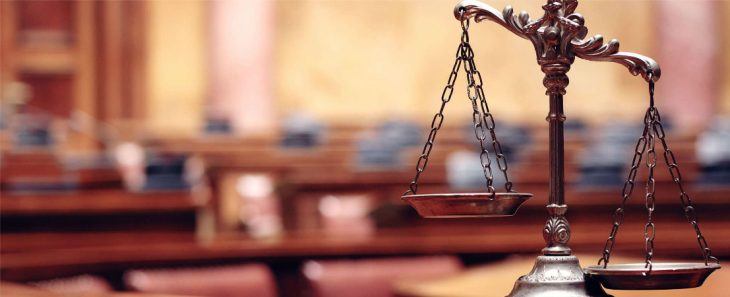Former Arkansas Supreme Court judge visits Northeast Arkansas to lobby against Issue 1
by August 15, 2018 5:12 pm 570 views

Former Arkansas Supreme Court Justice Annabelle Tuck thinks Issue 1 will diminish the power of the judiciary in the state, and will be a tool used by corporations and special interest groups to politicize the legal system.
Tuck spoke to the Jonesboro Kiwanis Club on Wednesday (Aug. 15) on behalf of an anti Issue 1 organization, Keep Politics Out of Our Courts.
“It’s not a deliberative process … that’s why I’m concerned,” she said.
Issue 1 is one of two measures placed on the ballot by Arkansas legislators. The measure received 21 out of 35 votes in the Senate and 66 of 100 votes in the House. Issue 1 proposes to amend the Constitution as follows:
• Cap contingency fees in civil actions at 33 1/3 of the recovery;
• Cap punitive damages at $500,000 or 3 times the amount of the compensatory damages, whichever is greater;
• Cap non-economic damages at $500,000; and,
• Allow the legislature to adopt rules of pleading, practice and procedure.
The part that troubles Tuck the most is the part where the legislature can involve itself in the adoption of rules of pleading, practice, and procedure. There is now a lengthy process that starts in committees to develop or change these rules that are used in state courts. Once these rules have been vetted, they are presented to the public for a comment period, and then the justices on the Arkansas Supreme Court review the comments before a final decision is rendered, she said.
If this change is implemented, the legislature could could change court rules and restrict what evidence is presented in a court case, she said. A rules change could make a case go through a panel before it reaches court or it could implement rules that could cause delays in some types of cases such as divorces. It could implement rules that would require the losing party to pay the winner’s legal fees, which would have the net impact of keeping average people with limited resources from filing lawsuits, she said.
Legislators can be influenced lobbyists from large corporations, or by fellow legislators that may have an agenda, she said.
A lawsuit has been filed to stop Issue from appearing on the November ballot. Proponents of the issue argue it will lure doctors and other professionals to the state.
Carl Vogelpohl, campaign manager for the pro-Issue 1 group Arkansans for Jobs and Justice, previously said the lawsuit indicates those opposed to Issue 1 are afraid they will lose in November.
“It is time Arkansans be provided the opportunity to vote on lawsuit reform,” Vogelpohl, said in a statement sent to Talk Business & Politics. “Despite efforts of a previous General Assembly, and other interested parties, lawsuit reform in Arkansas has been blocked as a result of litigation. Issue 1 is a policy decision that has been appropriately referred to the people by the legislature and should, once and for all, be decided by the people. I am confident that our Supreme Court will ultimately let the people decide. … Once again, trial lawyers are attempting to use the court to protect their own pocketbooks by seeking to deny Arkansas voters a voice.”
The group reported Wednesday that for the month of July it received monetary contributions of $94,745 bringing the cumulative donations to the committee to $1,595,879.
“Farmers, doctors, and job creators have joined together to help put Arkansas on a level playing field when competing with neighboring states,” Vogelpohl said in a statement with the financial report.
Tuck said her trip to Jonesboro was special. Her parents graduated from Arkansas State University. Her dad lived in the school’s dairy barn and milked cows each morning to pay for his tuition.
“Seeing all the buildings being built here … it has changed a lot. I’ve got my dad’s old year books,” she said.
